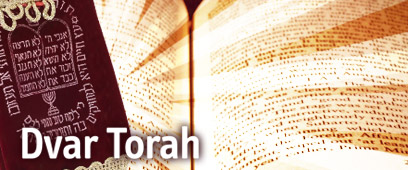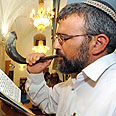

- Want to listen to the Dvar Torah? Click here
The third of the 10 Commandments prohibits uttering God’s name in vain. This prohibition is so severe that in a case of doubt we would always err on the side of caution. Say we are unsure if a given prayer that contains God’s name is appropriate in a certain situation, we would not say the prayer out of fear of saying God’s name in vain.
It’s interesting to look at the daily bracha for forgiveness “forgive us our Father, for we have sinned, pardon us our King, for we have rebelled, for you are a Good and Forgiving God. Blessed are You God, the Gracious One who pardons abundantly”.
The fact that we ask for forgiveness every day implies that we sin every day. But do we deserve to be forgiven by God today if we already sinned yesterday and were forgiven yesterday? If you were to find your son’s hand in the cookie jar and forgave him, and you found him with his hand in the jar again, wouldn’t you at some point punish your son and not forgive him?
Yet, we are so sure that God forgives us every day that we are ready to use God’s name to thank him for forgiving us?
The answer is to be found in the wording of the bracha “HaMarbeh Lisloach”, He Abundantly forgives. God is infinite and his capacity to forgive is also infinite. We can envision forgiving only a limited number of times, but God’s ability to forgive is inexhaustible. The concept of numbers doesn’t apply to God.
How does this work? Can we sin, beg for forgiveness and then sin again? The answer is sincerity. Infinity doesn’t imply forgiveness of all sins. God can distinguish between sincere and insincere forgiveness, and those who seek forgiveness even as they intend to sin again will not be forgiven. Those who pay lip service to Teshuva do not get forgiveness.
Teshuva not always accepted
There is another type of Teshuva which is not accepted even when it is sincere, when the Teshuva is premeditated. If someone does a sin intending to repent afterwards, he is naturally denied forgiveness. This is because our very repentance serves as our motivation to sin. If we were to be forgiven for such sins, we would interpret it as an invitation to sin in the coming year, thinking that God will forgive us afterwards.
However, even though pardons aren’t offered in such cases, God’s compassion is so great that there is still a way to return. The front door isn’t opened wide for us, but we can sneak in the back way.
What is this back way? Repentance is often stimulated by divine inspiration. Every so often we are inspired by no discernable reason to change our ways. This inspiration is God’s calling card. He comes knocking, he is asking if we are ready to turn over a new leaf.
God doesn’t extend such a calling card when we are dong a sin intending to repent afterwards. Yet, even in such cases, if we generate our own inspiration and insist on repentance, we too can approach the gate. The front gate won’t be thrown open for us upon arrival, but we will find a way to find some open door if we look hard enough for it.
Rabbi Eliezer Gurkow is the rabbi of Congregation Beth Tefilah in London, Canada.
Courtesy of the Orthodox Union Take Five for Torah program















